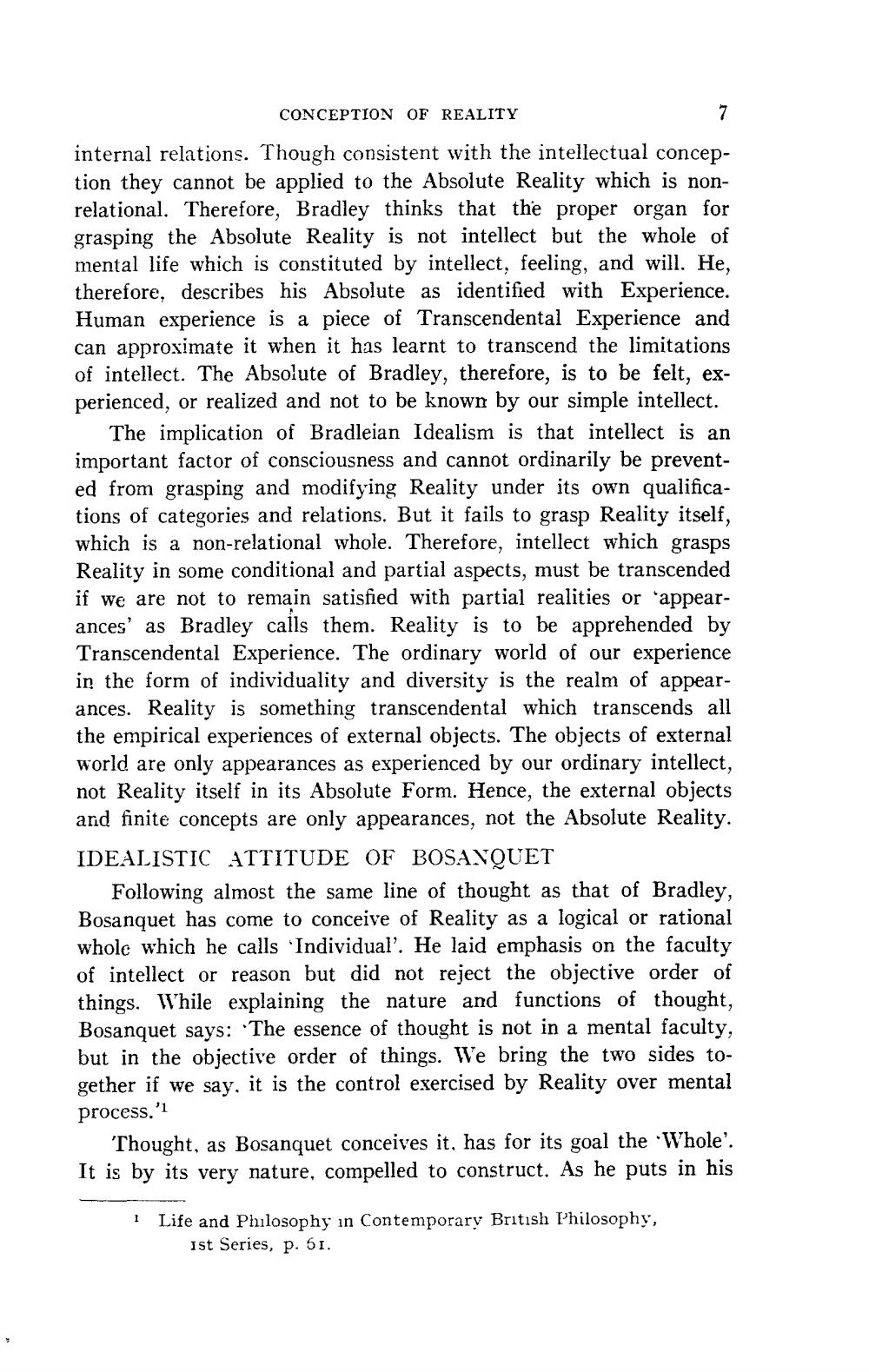________________
CONCEPTION OF REALITY
internal relations. Though consistent with the intellectual conception they cannot be applied to the Absolute Reality which is nonrelational. Therefore, Bradley thinks that the proper organ for grasping the Absolute Reality is not intellect but the whole of mental life which is constituted by intellect, feeling, and will. He, therefore, describes his Absolute as identified with Experience. Human experience is a piece of Transcendental Experience and can approximate it when it has learnt to transcend the limitations of intellect. The Absolute of Bradley, therefore, is to be felt, experienced, or realized and not to be known by our simple intellect.
7
The implication of Bradleian Idealism is that intellect is an important factor of consciousness and cannot ordinarily be prevented from grasping and modifying Reality under its own qualifications of categories and relations. But it fails to grasp Reality itself, which is a non-relational whole. Therefore, intellect which grasps Reality in some conditional and partial aspects, must be transcended if we are not to remain satisfied with partial realities or appearances' as Bradley calls them. Reality is to be apprehended by Transcendental Experience. The ordinary world of our experience in the form of individuality and diversity is the realm of appearances. Reality is something transcendental which transcends all the empirical experiences of external objects. The objects of external world are only appearances as experienced by our ordinary intellect, not Reality itself in its Absolute Form. Hence, the external objects and finite concepts are only appearances, not the Absolute Reality. IDEALISTIC ATTITUDE OF BOSANQUET
Following almost the same line of thought as that of Bradley, Bosanquet has come to conceive of Reality as a logical or rational whole which he calls Individual'. He laid emphasis on the faculty of intellect or reason but did not reject the objective order of things. While explaining the nature and functions of thought, Bosanquet says: The essence of thought is not in a mental faculty, but in the objective order of things. We bring the two sides together if we say, it is the control exercised by Reality over mental process.'1
Thought, as Bosanquet conceives it, has for its goal the Whole'. It is by its very nature, compelled to construct. As he puts in his
1
Life and Philosophy in Contemporary British Philosophy, 1st Series, p. 51.




